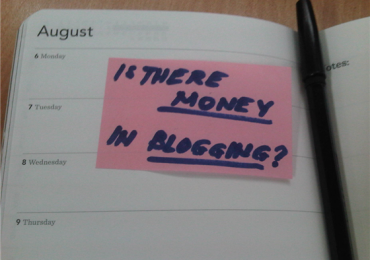As a blogger, you will no doubt have heard about the fuss that people have been making in about cryptocurrencies and the blockchain. In this article, we are not going to go into detail about what these concepts are.
For our purposes, it is sufficient to say that people can earn cryptocurrency coins by verifying transactions conducted via blockchain tech, like Bitcoin, Ethereum, etc. What is also important to note is that mining takes a lot of resources both in terms of electricity and computing power.
Which is where the point of this post comes in. It is not as profitable to mine cryptos as it once was thanks to these costs and the competition. This, in turn, has led to a new cyber threat – cryptojacking. Never heard of it? Don’t worry; most people haven’t.
What is Cryptojacking?
It’s simple, a hacker hacks your site or blog and inserts malicious code. This enables them to use the resources of any computer that visits the site to mine cryptocurrency. They, therefore, are not simply out to get your information but want to use your computer to help verify transactions.
You pay for the electricity, and your computer works harder, and they get all the rewards.
Are They Doing This to Mine Bitcoin?
It’s not very likely that they would. Bitcoin mining requires a pretty powerful rig. Someone running a powerful enough rig would no doubt have taken the trouble to secure it properly against hacking. In addition, Bitcoin is easily traceable.
Newer coins, such as Monero, on the other hand, are easier to mine because they are still relatively small in size, with fewer miners. A standard laptop or desktop is able to do the job admirably. Monero works in conjunction with CoinHive.
What is CoinHive?
As a blogger, you need to look for ways to monetize your content constantly. Adverts are one way of doing this but need to be added carefully, or you risk alienating your visitors. CoinHive was developed in response to this.
The idea was simple enough – you place this code on your blog. When people came to read your blog, the software would kick in, and some of their computer’s resources would be used to mine Monero. They get access to the content they want, without an ad in site and you get paid. It’s a win-win.
It’s a simple concept and makes sense in theory. In practice, however, it has provided a great solution for hackers as well. All they have to do is to hack your site and implement the software.
Why Should You Be Concerned?
Every time you access your blog to check content, the script will run, and your resources will be used. But, more importantly, the same thing is happening to users of your blog. It is not really going to be that easy to pick up, but users might start noticing that their computers run more slowly when they visit your blog.
CoinHive can be heavy on resources, depending on how it has been set up. Visitors are not likely to notice that their energy bill increases as a result of visiting your blog. They will, however, notice how much slower their computer is when they are on your site.
If they know anything about computers, they will be able to pick up that the power from their CPU is being diverted. Who do you think they will blame for that? As a result, cryptojacking could seriously damage your online reputation and lose you, readers.
But it does not stop there. Savvy hackers can take things a step further and plant software that allows them to steal information. So, while your visitor is reading your content, their personal information is up for grabs as well.
But I Am Not to Blame
Well, actually, you could very well be held liable. It is your duty as a blogger or site owner to ensure that your site is secure. You have unwittingly aided a hacker, and that means that you could conceivably be held responsible for damages.
While this is still a relatively new area, authorities are taking a very strict stance on the protection of user data. You could end up having to pay a strict fine, or possibly even face a lawsuit from one of your visitors.
What Can I Do?
As a blogger, you need to keep your site as secure as possible. Do ensure that you have a good anti-virus and anti-malware program in place. Keep these up to date and runs scans on your site regularly. Aside from that, make sure that you choose strong passwords and change these regularly. You also need to find a reliable backup solution for your site in the event it is compromised.
When it comes to protecting your visitors, regular checks and a great anti-malware program is your top defence. Read about other potential cybersecurity threats in the infographic below.






